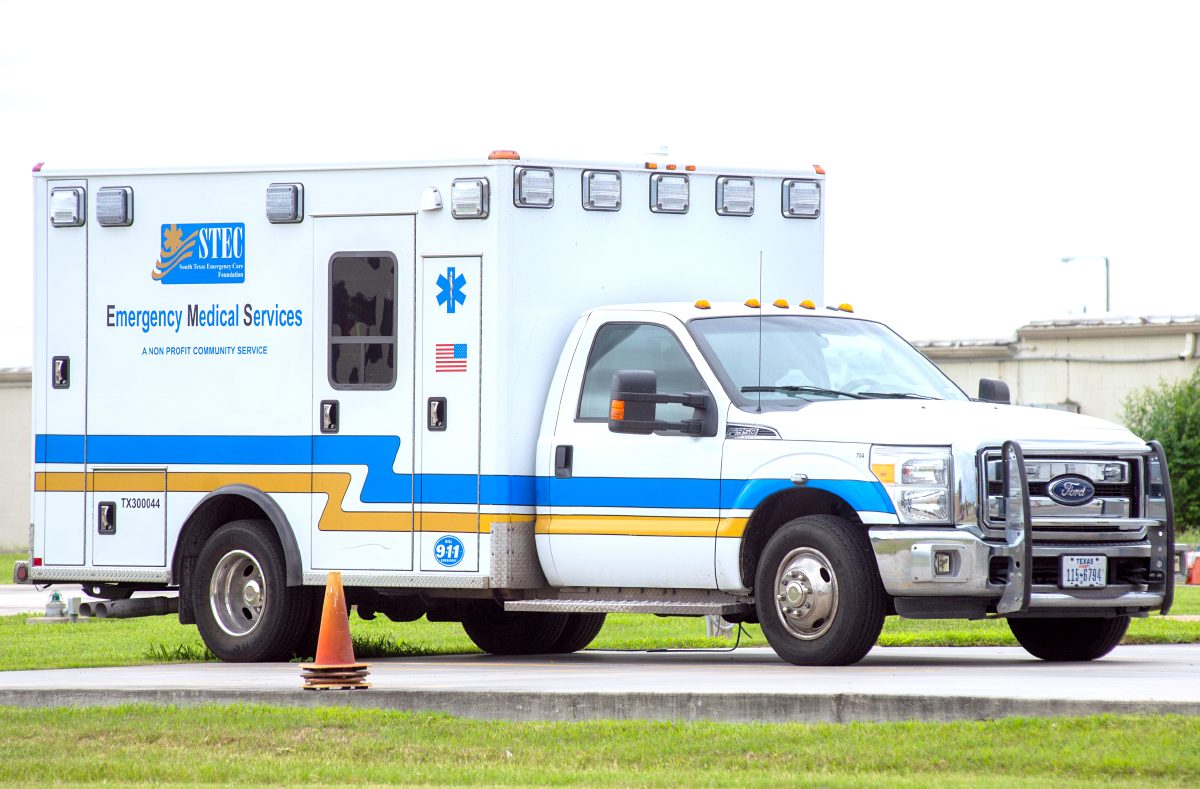
HARLINGEN — Some Harlingen city commissioners want to allow outside ambulance companies into the city as they consider renewing the South Texas Emergency Care Foundation’s contract, which gives it sole rights to provide ambulance services within the city limits.
The company’s contract expires next month.
During a workshop in which residents spoke out, some commissioners said they wanted outside companies to help provide lucrative non-emergency transports, a service which pumps revenue helping STEC operate its costly emergency ambulance runs.
During the meeting, some residents complained of what they described as non-emergency transports’ slow response times.
“I want change,” Commissioner Rene Perez said during Thursday’s three-hour workshop. “I don’t know if what’s going on right now is working. Whether it’s adding one of two (outside ambulance companies), whatever it is, that’s what I want.”
During discussion, Bill Aston, STEC’s executive director, warned the company might consider charging the city to help fund its emergency medical services if commissioners allow outside companies to eat into revenue generated through its non-emergency transports.
More than 10 years ago, STEC was charging the city about $395,000 to help fund its emergency ambulance runs, he said.
Then the company began charging its patients, instead.
“The government no longer needs to pay EMS subsidies because the losses on the 911 side were made up by the more lucrative non-emergency side,” Aston told commissioners. “The collection rate is always better on the non-emergency side.”
In response, Commissioner Frank Morales suggested requesting proposals from ambulance companies.
“We can always do the RFQs to see who else could do the service,” he said. “Maybe someone can do it without the city having to subsidize the service.”
Amid discussion, Perez questioned STEC’s contract, whose exclusivity clause is backed by a city ordinance granting police the power to warn or cite outside ambulance companies entering the city limits.
Across the state, the cities of Arlington, Waco and Wichita Falls along with the counties of Wichita Falls and Rockwell offer their EMS services exclusive contracts, officials said.
“My biggest belief is what may be causing this problem is that it’s exclusive,” Perez said. “Competition is good. It forces you to get better. It forces you to think outside of the box. For a while, STEC has been the only one that’s been in the game. They have no incentive (to improve) because it’s exclusive.”
During the meeting, Mayor Norma Sepulveda questioned whether STEC could provide faster non-emergency transport service.
“How do you propose that we remedy the issues that we are having if we can continue moving forward?” she asked Aston. “How are we going to make this time different to ensure that there’s no substantial wait time for individuals?”
In response, Aston said company officials would work to speed up response times while better scheduling transports.
“We’re going to start meeting to try to clear some of this up,” he said.
Call for more ‘resources’ in non-emergency service
From the audience, a nursing home administrator joined residents who complained of what they described as STEC’s non-emergency transports’ slow response times.
Meanwhile, Archie Drake, Valley Baptist Medical Center’s chief operating officer, told commissioners the city needed more “resources” to run non-emergency transports.
“There’s a need for more resources,” he said. “I want the resources in the community to give timely response.”
Standing behind STEC
From the audience, Dr. Richard Ibarra, who serves as medical director for South Padre Island’s and Los Fresnos’ emergency medical services operations, stood behind STEC’s performance.
“I think the strongest argument is physician-patient-family choice,” he wrote in a statement.
Meanwhile, Dr. Michael Mohun, STEC’s medical director who serves as the city’s health authority, warned outside competition could spark “chaos” in the city’s ambulance system.
“I’ve seen first-hand the chaos that can occur when you have multiple EMS systems,” he told commissioners. “I’ve certainly seen variance of care. One of the values that we have here is that you get multiple EMS units, you get a quality of care that I don’t think you could find elsewhere in South Texas.”
While STEC runs eight to 11 mobile intensive care ambulances a day within the city limits, the company taps three ambulances to offer non-emergency transports, officials said.
Meanwhile, STEC’s ambulances average emergency response times of 8 minutes and 51 seconds, they said.
Last year, members of the city’s past commission were considering scraping the STEC’s exclusive rights clause to allow other companies to offer lucrative non-emergency transport services.
Background
In 1979, city leaders founded STEC to provide ambulance service in town.
Today, the nonprofit, which offers ambulance service across most of Cameron County, stations eight to 11 ambulances in the Harlingen area, officials have said.
Agreements with other regional emergency medical services companies offer the city back-up ambulance service, they said.
About five years ago, STEC boosted its rates to range from $795 for basic life support to $1,220 in the area where about half its patients are on Medicare and Medicaid, which reimburses about a third of billings, company officials said.




